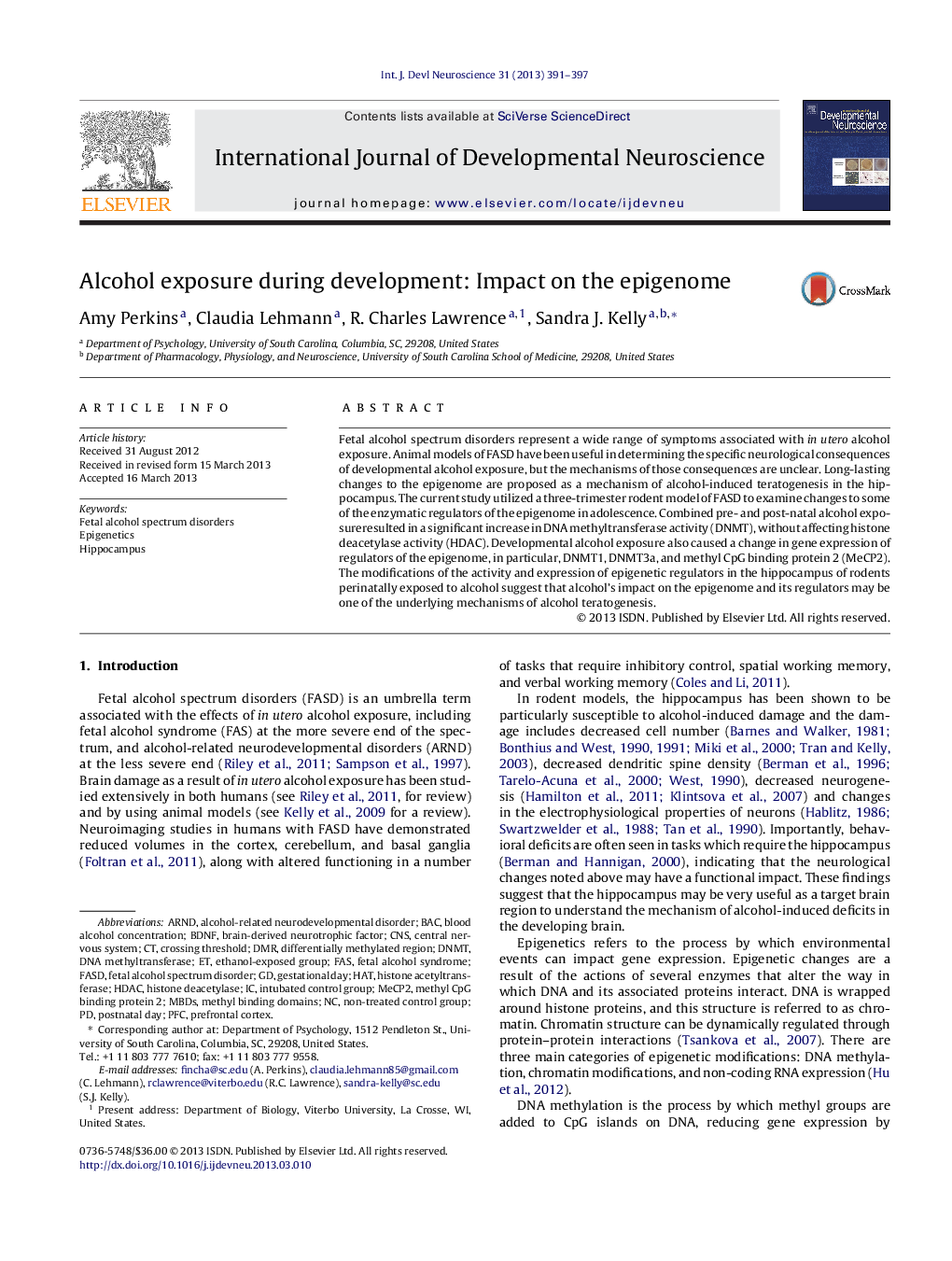| Article ID | Journal | Published Year | Pages | File Type |
|---|---|---|---|---|
| 2786141 | International Journal of Developmental Neuroscience | 2013 | 7 Pages |
•We review recent research demonstrating epigenetic modifications in animal models of FASD.•DNMT activity is shown to be increased in the hippocampus after the cessation of ethanol exposure.•There are no changes in HDAC activity in the hippocampus after the cessation of ethanol exposure.
Fetal alcohol spectrum disorders represent a wide range of symptoms associated with in utero alcohol exposure. Animal models of FASD have been useful in determining the specific neurological consequences of developmental alcohol exposure, but the mechanisms of those consequences are unclear. Long-lasting changes to the epigenome are proposed as a mechanism of alcohol-induced teratogenesis in the hippocampus. The current study utilized a three-trimester rodent model of FASD to examine changes to some of the enzymatic regulators of the epigenome in adolescence. Combined pre- and post-natal alcohol exposureresulted in a significant increase in DNA methyltransferase activity (DNMT), without affecting histone deacetylase activity (HDAC). Developmental alcohol exposure also caused a change in gene expression of regulators of the epigenome, in particular, DNMT1, DNMT3a, and methyl CpG binding protein 2 (MeCP2). The modifications of the activity and expression of epigenetic regulators in the hippocampus of rodents perinatally exposed to alcohol suggest that alcohol's impact on the epigenome and its regulators may be one of the underlying mechanisms of alcohol teratogenesis.
